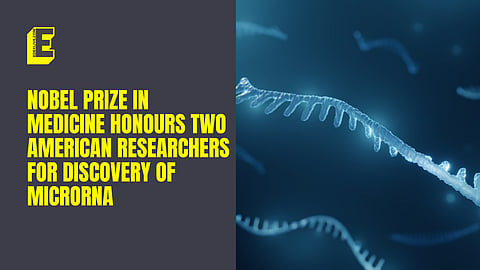

American researchers Victor Ambros and Gary Ruvkun were granted the Nobel Prize in medicine on Monday, October 7, for discovering microRNA, which is a key concept controlling the regulation of gene activity.
Their finding is "proving to be fundamentally important for how organisms develop and function," according to the Nobel Assembly, reports the Associated Press.
Ambros conducted the study at Harvard University that earned him the prize. He teaches natural science at the University of Massachusetts Medical School at the moment.
According to Thomas Perlmann, the Nobel Committee's Secretary-General, Ruvkun conducted his research at the Harvard Medical School, where he teaches genetics and at Massachusetts General Hospital.
Perlmann said he spoke to Ruvkun by phone shortly before the announcement.
“It took a long time before he came to the phone and sounded very tired, but he quite rapidly, was quite excited and happy, when he understood what, it was all about,” Perlmann said.
Last year, Hungarian-American Katalin Karikó and American Drew Weissman received the Nobel Prize in Physiology or Medicine for their discoveries that enabled the development of COVID-19 mRNA vaccines, which were important in curbing the pandemic.
The prize includes a financial reward of 11 million Swedish kronor ($1 million) from a bequest left by its originator, Swedish inventor Alfred Nobel.
The declaration kicked off this year's Nobel Prize award season.
The Nobel Prize announcements continue on Tuesday, October 8, with the physics prize, followed by chemistry and literature on Wednesday, October 9, and Thursday, October 10, respectively. The Nobel Peace Prize will be announced on Friday, October 11, followed by the Nobel Memorial Prize in Economic Sciences on October 14.
The laureates will collect their honours at ceremonies on December 10, the anniversary of Nobel's death.
